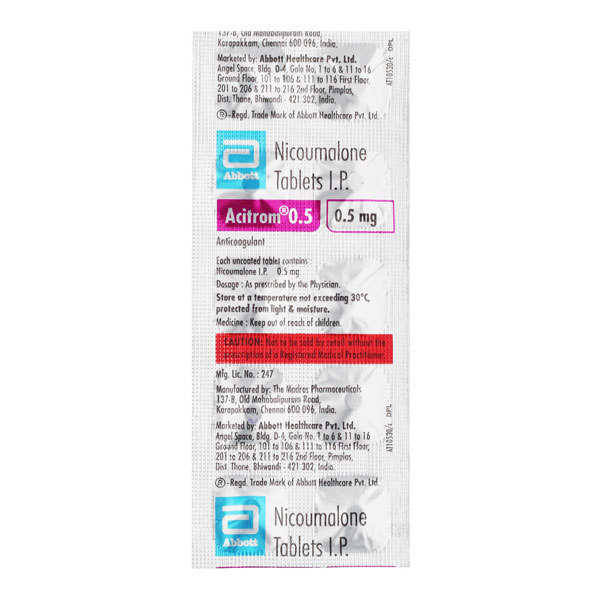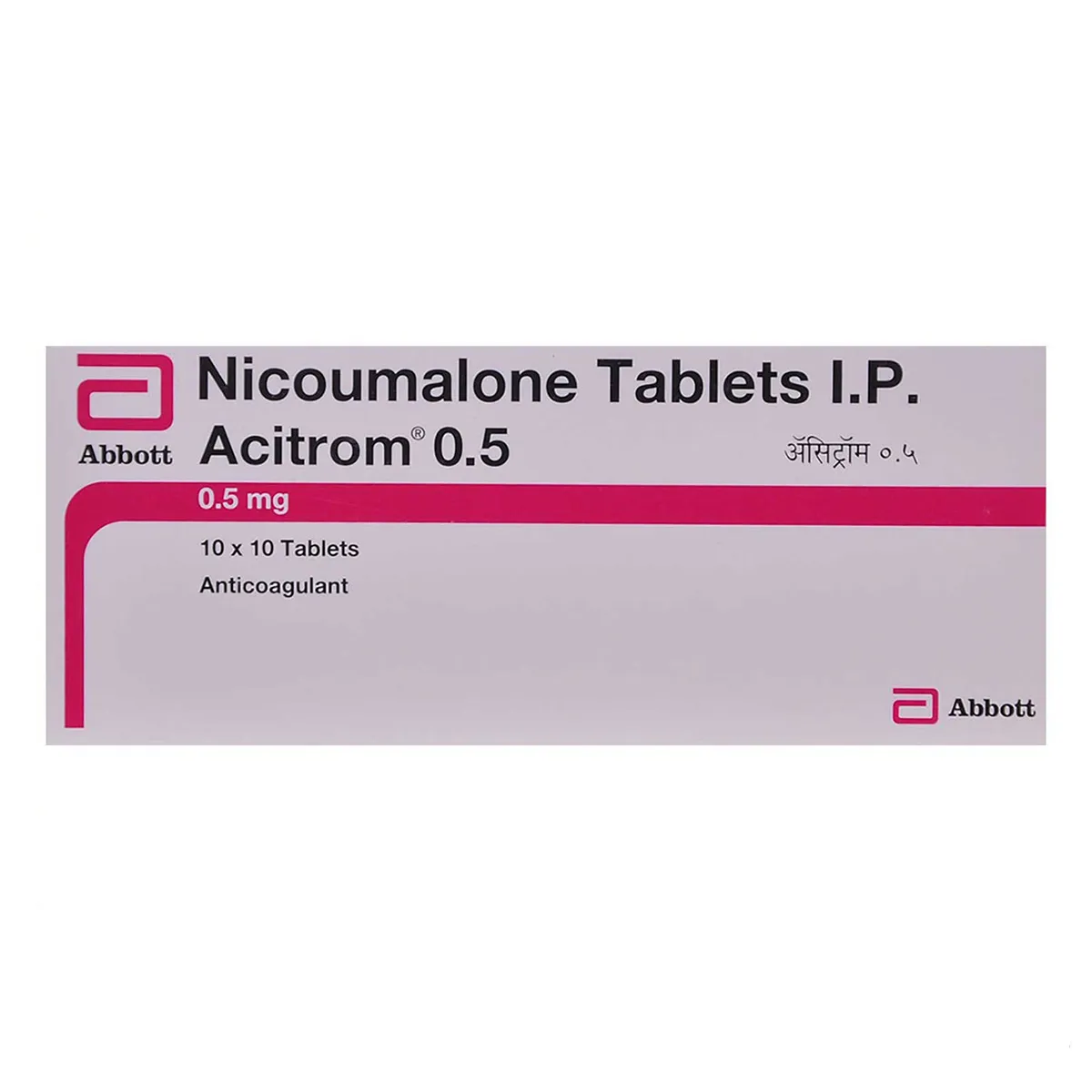🩸⚖️💊 Acenocoumarol 0.5mg Tablet: Precision Anticoagulation for Thrombosis Prevention
Acenocoumarol 0.5mg, also known by the brand name Sintrom, is an oral anticoagulant (blood thinner) that belongs to the vitamin K antagonist (VKA) class of drugs. It is widely used for the prevention and treatment of blood clots in conditions where the risk of thromboembolism is high, such as atrial fibrillation, deep vein thrombosis (DVT), pulmonary embolism (PE), and in patients with mechanical heart valves.
Though similar in action to warfarin, Acenocoumarol differs slightly in pharmacokinetics, offering a shorter half-life and rapid onset of action, making dose adjustments and individualized therapy easier in some cases.
🔬 Mechanism of Action
Acenocoumarol works by inhibiting the synthesis of vitamin K-dependent clotting factors, including:
-
Factor II (Prothrombin)
-
Factor VII
-
Factor IX
-
Factor X
-
Proteins C and S (natural anticoagulants)
By reducing these clotting factors, it slows the blood’s ability to form clots, thereby preventing thrombus formation and reducing the risk of stroke, embolism, or complications from existing clots.
📌 Indications and Uses
Acenocoumarol 0.5mg is used for:
-
Atrial fibrillation (AF) – to reduce risk of stroke
-
Deep vein thrombosis (DVT) – treatment and secondary prevention
-
Pulmonary embolism (PE) – treatment and prevention
-
Prophylaxis in patients with mechanical heart valves
-
Thrombophilia (inherited clotting disorders)
It is not used for immediate anticoagulation; a bridging agent like heparin may be used initially in acute situations.
💊 Dosage and Administration
-
The starting dose is typically 1 to 4 mg daily, but 0.5mg tablets are used for fine-tuned dose adjustments.
-
Dose must be personalized based on International Normalized Ratio (INR) testing.
-
Target INR typically ranges from 2.0 to 3.5, depending on indication.
Tablets should be taken at the same time each day, with or without food. Strict adherence is essential.
⚠️ Precautions and Monitoring
-
Regular INR monitoring is mandatory to avoid under- or over-anticoagulation
-
Use with caution in:
-
Liver or kidney disease
-
Uncontrolled hypertension
-
Elderly patients
-
-
Avoid sudden changes in diet, especially vitamin K-rich foods (like spinach, broccoli, kale)
-
Avoid alcohol and cranberry juice, which may increase bleeding risk
Pregnant women should not use acenocoumarol due to teratogenic effects. Safer alternatives like heparin are preferred in pregnancy.
🤒 Side Effects
Common:
-
Easy bruising
-
Nosebleeds
-
Gum bleeding
-
Heavy menstrual bleeding
Serious:
-
Major bleeding (e.g., gastrointestinal, intracranial)
-
Skin necrosis (rare)
-
Purple toe syndrome
Seek immediate medical help for any unusual bleeding or signs of blood in urine/stool.
🔄 Drug Interactions
-
High interaction potential with:
-
Antibiotics, NSAIDs, antifungals
-
Herbal supplements (e.g., ginseng, ginkgo, garlic)
-
-
Always inform healthcare providers about acenocoumarol use before surgeries or new prescriptions
🧊 Storage Instructions
-
Store below 25°C, in a dry place
-
Protect from moisture and sunlight
-
Keep out of reach of children
📝 Conclusion
Acenocoumarol 0.5mg tablet plays a crucial role in long-term anticoagulation therapy, especially where precise dose adjustments are needed. When managed carefully with regular INR monitoring, it provides effective protection against potentially life-threatening clots while balancing the risk of bleeding. Patient education and adherence are key to safe and successful treatment.
Note: This information is intended for educational purposes and should not replace professional medical advice. Always consult a healthcare provider for personalized guidance.


Reviews
There are no reviews yet.